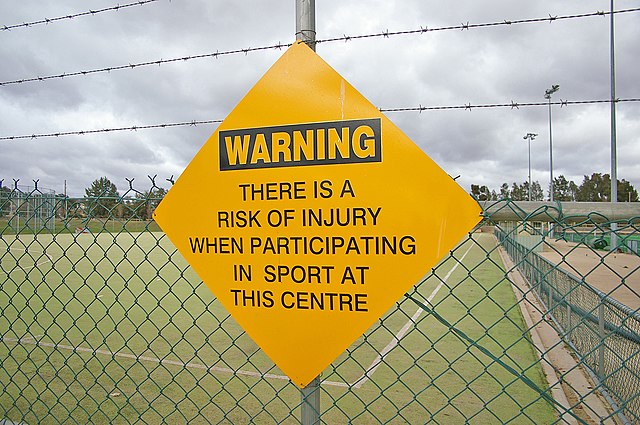Commonly linked to symptoms of depression, anxiety can also mentally affect someone after an injury.
According to the DSM V, there are three forms of anxiety after an illness.
First, anxiety after another medical condition can be described as “panic attacks or anxiety is predominant in the clinical picture.”
Second, “there is evidence from the history, physical examination, or laboratory findings that the disturbance is the direct pathophysiological consequence of another medical condition.”
Lastly, anxiety could be when “the disturbance causes clinically significant distress or impairment in social, occupational, or other important areas of functioning.”
Similar to depression, one can’t automatically assume they have anxiety without a clear diagnosis from a doctor.
First, the clinician has to first prove that the patient has a previous medical condition. Anxiety symptoms are most common in endocrine disease, cardiovascular disorders, respiratory illnesses, metabolic disturbances, and neurological illness, among others.
After the diagnosis, “it must be established that anxiety symptoms can be etiologically related to the medical condition through a physiological mechanism before making a judgement.”
To find the best explanation for the symptoms in a specific person, the clinician has to make clear and careful decisions, along with assessing the patient in specific areas.
The DSM V clearly states “anxiety due to another medical condition is diagnosed when the medical condition is known to induce anxiety and when the medical condition preceded the onset of the anxiety.”
People start to worry about someone when they have anxiety along with a preexisting illness. Some disorders, like social anxiety, often link to illnesses like heart disease and gastrointestinal illnesses.
According to verywellmind.com, “those who suffer from both anxiety and physical illness have been shown to have a poorer quality of life, so it is important that you receive treatment to address both your anxiety and physical health concerns.”
Getting back into any routine could be challenging. Whether it’s starting up a diet or going back to school, injured athletes can find it extremely stressful going back to that routine.
While being injured, athletes find themselves sitting on the sidelines, watching their teammates condition and practice. When it’s finally time to return, the athletes have to break the cycle of not working out and start getting fit again. This can be hard on their mental health because their bodies won’t be as strong as they used to be.
“I was incredibly nervous [to return], because I was almost completely unable to kick with my left foot,” said Adam Harvey, a senior on the boys soccer team.
Coming back from adversity is a challenge on the body since it hasn’t been pushed that hard in a while. Without being completely ready to return, this leaves athletes to not play at their best.
Along with being anxious to play again, athletes often find themselves anxious waiting on results from doctors. From CT scans to X-rays, waiting for the gut-wrenching news can be a nail-biter.
“I was really anxious while waiting to get my X-ray results back and to find out how long my recovery would take,” said Harvey.
Jitender Sareen and her colleagues from the University of Manitoba did a study on how anxiety disorders relate to physical conditions.
Out of the 4,181 adults who were part of the German Health Survey, 429 had an anxiety disorder within the past month. In addition, 2,610 had a physical condition within the past month.
The survey questioned whether or not the patient has any physical illnesses through a questionnaire. It consisted of 44 specific questions, including blood pressure measurements and urine samples.
A psychologist interviewed the patients and used the DSM IV to detect disorders.
Finally, a quality of life survey was used to ask questions such as the participants’ general health and physical functions.
If you find yourself nervous to play again, just make sure to be confident and know that you can do it.
“Stress is an ignorant state. It believes that everything is an emergency. Nothing is that important,” said Natalie Goldberg.





Sara Matthews • Mar 3, 2022 at 12:29 pm
How am I related to such perfection?! What a great article/research paper:)
Deeksha • Mar 3, 2022 at 12:27 pm
YES REBECCA, so proud of you!!
Blood, sweat, and tears went into this masterpiece… beautifully written my friend
Millie • Mar 3, 2022 at 12:21 pm
This is my favorite article ever!